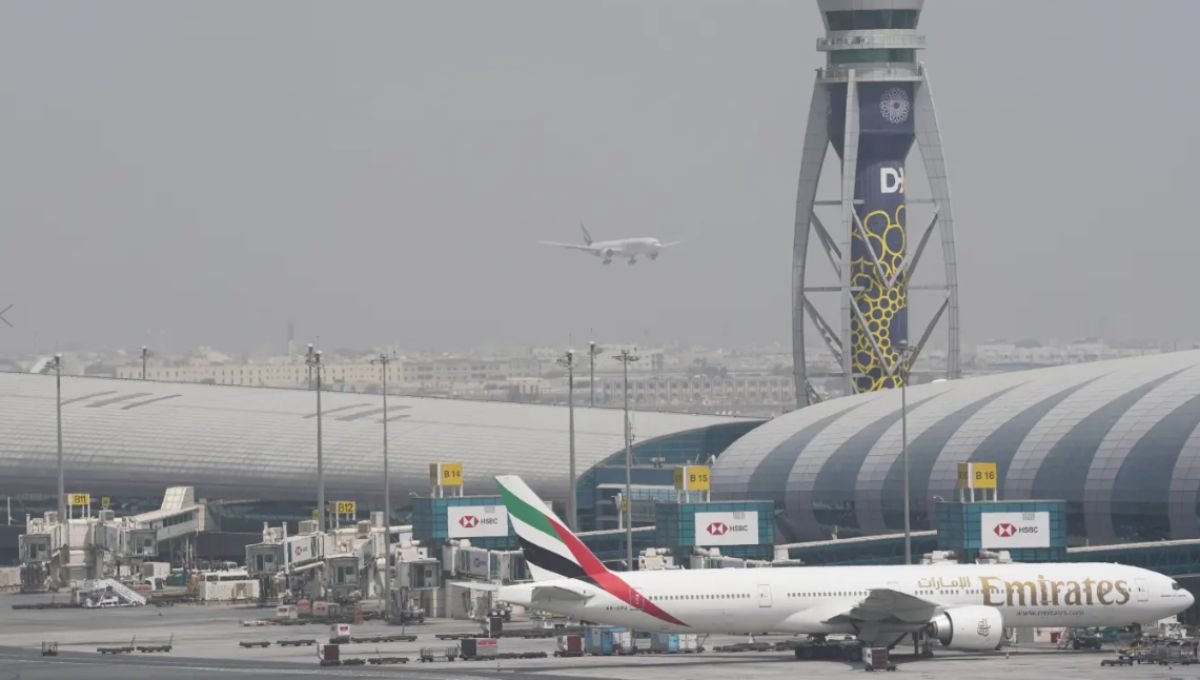The United States’ entry into the Israel-Iran conflict has triggered widespread disruptions across international air travel, with flight cancellations continuing into Tuesday—even after President Donald Trump claimed a ceasefire was “in effect.”
Following Trump’s weekend airstrikes on three Iranian military and nuclear sites, Iran responded Monday with a limited missile strike on U.S. forces at Qatar’s Al Udeid Air Base. This came shortly after Qatar temporarily closed its airspace, citing security concerns.
Since Israel launched its surprise offensive on Iran on June 13, air travel throughout the region has been significantly impacted. Iran retaliated with missile and drone strikes, escalating tensions. After the U.S. joined the conflict, flight cancellations increased, especially in countries bordering the Persian Gulf like Qatar and the United Arab Emirates.
A ceasefire between Israel and Iran brought a brief sense of relief, but with Trump accusing both sides of violating the truce on Tuesday, many airlines have opted to maintain limited service through midweek due to lingering safety threats.
Mideast is Worst Affected
Airlines based in the Middle East faced the heaviest disruptions. Qatar Airways canceled multiple flights after Qatar closed its airspace on Monday. Although operations resumed following the reopening, the airline warned that some disruptions could extend through Thursday.
Emirates suspended all flights to Iran and Iraq, including cities such as Baghdad and Basra, through June 30. Some other Emirates routes were rerouted but continued operating, with adjusted flight paths to avoid high-risk zones. Delays are still expected on select flights.
Etihad Airways, based in Abu Dhabi, canceled all flights to Tel Aviv through July 15. It also suspended service to several nearby destinations—Kuwait, Doha, Dammam, and Muscat—for Monday and Tuesday.
Gulf Air, Bahrain’s national airline, extended flight cancellations to Jordan through June 27.
Many Other Airlines Cancel and Delay Flights
Airlines beyond the region also adjusted routes and canceled flights. Singapore Airlines halted some services to and from Dubai through Wednesday, citing a risk-based evaluation of the regional security landscape. British Airways suspended flights to Doha through the same period, with ongoing evaluations in place.
Air India temporarily suspended all flights to the Middle East, as well as to and from Europe and the U.S. East Coast. The airline, which recently suffered a deadly crash, later said it aimed to gradually restart some of those routes starting Tuesday.
Dutch airline KLM halted flights to Dubai and to Saudi cities Riyadh and Dammam until further notice. Philippine Airlines canceled flights to Doha, Dubai, and Riyadh for Tuesday, including one Wednesday route to Doha. Japan Airlines canceled its scheduled flights to Doha through June 27 after a Tokyo-to-Doha flight was forced to turn back on Monday. Additionally, Qatar Airways canceled a Tuesday flight from Hong Kong to Doha.
Flight tracking site FlightAware recorded 382 global flight cancellations by 10:30 a.m. ET Tuesday, following 834 on Monday.
Safety Comes First
The surge in flight disruptions underscores how airspace closures and rerouted paths are critical for ensuring passenger safety amid volatile geopolitical situations. Experts say such precautions, though inconvenient, are essential in preventing disaster.
“It is the responsibility of states to ensure their airspace is safe for commercial aviation,” said Hassan Shahidi, CEO of the Flight Safety Foundation. He noted that Qatar’s swift closure of its skies on Monday was “absolutely the right decision” given the threat of conflict.
Flightradar24 reported that UAE airspace also experienced temporary closure on Monday.
While the long-term outlook remains uncertain, Ian Petchenik, a spokesperson for Flightradar24, emphasized that such travel decisions reflect airlines’ commitment to safety. “Air traffic controllers and flight crews are doing everything they can to protect passengers,” he said.
Shahidi encouraged travelers to stay informed via official government advisories, such as those issued by the U.S. State Department. He also pointed to the broader challenges extended disruptions can create—especially for individuals trying to evacuate conflict zones when commercial travel options are limited.
He stressed that past tragedies, such as the 2014 downing of Malaysia Airlines Flight 17 over Ukraine, remain stark reminders of what’s at stake. That incident killed 298 people after the passenger plane was struck by a missile.
“We’re all hoping and urging for a peaceful resolution,” Shahidi said. “Especially to protect civilian air travel. We can’t afford another MH17. Innocent lives should not be lost in missile strikes. That history must not repeat itself.”
Also Read:
Trump administration postpones classified briefings for lawmakers on Iran














